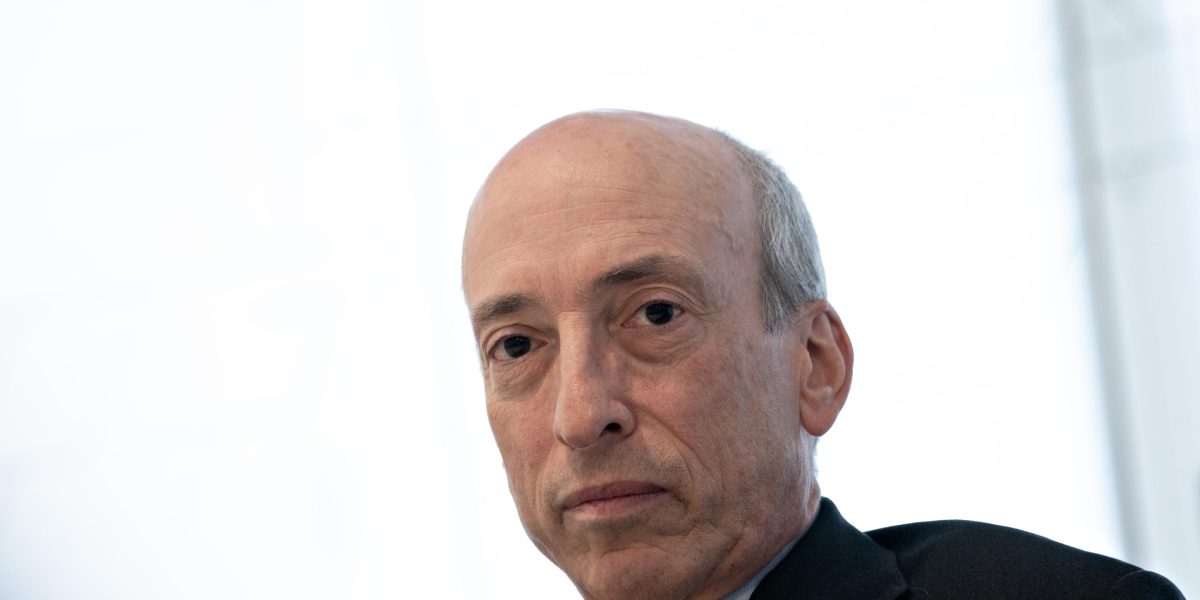Gary Gensler, chair of the Securities and Exchange Commission. Andrew Harrer—Getty Images
In an enforcement action announced on Monday, the Securities and Exchange Commission charged Los Angeles–based entertainment company Impact Theory with conducting an unregistered offering of securities via non-fungible tokens, or NFTs .
As the SEC expands its definition of which types of crypto assets qualify as securities, the case breaks new ground by determining that NFTs fall under the agency’s jurisdiction.
“Absent a valid exemption, offerings of securities, in whatever form, must be registered,” Antonia Apps, director of the SEC’s New York Regional Office, said in a statement.
The question of whether NFTs qualify as securities has remained open for several years. Before the SEC weighed in, a lawsuit in the U.S. District Court for the Southern District of New York remained the highest-profile case to tackle the issue, with a group of NFT collectors suing Dapper Labs. The plaintiffs alleged that the crypto firm had earned hundreds of millions of dollars by selling unregistered securities.
Although Dapper Labs motioned for the case to be dismissed last year, a judge ruled in February that it could move forward, concluding that it was “plausible” NFTs could qualify as securities.
Dapper continues to argue otherwise, with a spokesperson telling Bloomberg : “Courts have repeatedly found that consumer goods—including art and collectibles like basketball cards—are not securities under federal law.”
The difference, according to the judge, is that with traditional collectibles, the value would be unaffected if said producers went out of business. With NFTs, where the developer is also managing the blockchain technology behind a collection, its value could be intertwined with the success of the company.
In Monday’s case, the SEC said that between October and December 2021, Impact Theory offered three tiers of NFTs, called Founder’s Keys, and encouraged investors to view the purchase as an investment in the business. According to the SEC, Impact Theory said it was “trying to build the next Disney ,” and that the NFTs would deliver “tremendous value” to purchasers if the business succeeded.
In a separate order , the SEC included public statements from the company’s founders. About the NFTs, the company stated: “We like to say that it unlocks the future of everything that we’re doing as a company”—a tacit acknowledgment that the product was a security, or an investment contract, in the agency’s view. Impact Theory sold nearly 14,000 NFTs to hundreds of investors, raising almost $30 million worth in Ethereum .
While Impact Theory did not admit or deny the SEC’s allegations, it agreed to a cease-and-desist order, as well as a $6.1 million fine in disgorgement, prejudgment interest, and a civil penalty. It will also return all proceeds from NFT sales to investors.
Two commissioners, Hester Peirce and Mark Uyeda, dissented, writing in a separate statement that they disagreed with the application of the Howey Test—a Supreme Court precedent that creates a framework for which assets are securities—and that the NFTs did not represent shares in a company or produce any type of dividend.
“The Commission should have grappled with these questions long ago and offered guidance when NFTs first started proliferating,” they wrote.
It is unclear whether the enforcement action will be an opening salvo against the broader NFT industry; the SEC has yet to file any lawsuits against major players in the space, such as Dapper Labs. In October 2022, Bloomberg reported that the SEC was trying to prove whether Yuga Labs, creator of the popular Bored Ape Yacht Club NFT collection, was offering unregistered securities, although the agency has yet to bring charges.
The broader crypto industry frequently complains that SEC Chair Gary Gensler has engaged in a policy of “regulation by enforcement” by bringing lawsuits against firms without engaging in rule-making to clarify the agency’s jurisdiction or how companies can comply. Gensler has argued that the industry is “rife with fraud, scams, and abuse,” and that existing rules are sufficient.
